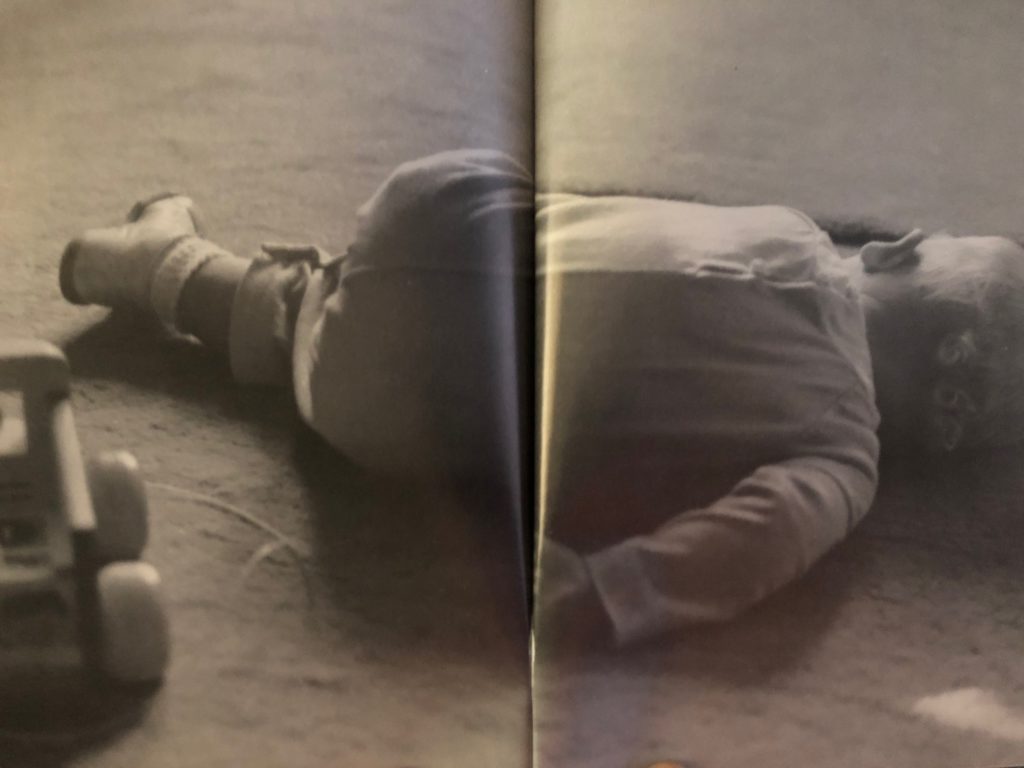
As any year ends and another begins, most of us quietly, maybe half-consciously, take stock, organize our memories, gird ourselves to begin again. We put a period at the end of the sentence. And we capitalize the beginning of the next.
This year, I believe this punctuation is a spiritual necessity: for ourselves, for our communities, for our organizations and for our nation.
And I believe this year, we ought to do it consciously, explicitly and out loud—each of us alone, and all of us together.
What have we lost this year? Tallying that up is not difficult. It’s all missing, right before your eyes. Last year, you had it; this year, you do not. Mourn it, this holiday season—mourn it all. The holidays are for that, too.
What have we gained? There are those who have not survived this year physically, financially, or spiritually. And we should mourn them, too.
But for those of us who have made it through 2020: I believe we have gained a great deal.
I feel compelled to write some of these things down, because what we have gained this year is worth holding onto—and if these gains are lost with the end of the pandemic, and a return to what we clumsily remember as “normalcy”—we’ll soon be mourning their loss, too.
• More honest conversations. People in this much trouble have zero time for lily gilding or happy talk—from their family members, from their politicians or from the institutions that structure our world. Have you noticed? They should retain that impatience and encourage one another, as a speechwriter put it to me last week, “to say the thing.”
• More important conversations. Just as kitchen table conversations are these days more frequently about life and death and hate and love and not your new Apple watch and the number of steps it told you you took today—scholars are arguing about how we ought to teach American history and corporate CEOs are talking about how they can better serve the society that feeds them. They’ve got a long way to go in developing these conversations. And they’ve got a long way to go back, if we let them.
• More articulate conversations. Last year at this time Black was lower-case. This year we have gained that capital B that reminds us every single time we write it or read it, that something has changed—something we know is far from finished. Racism (and antiracism). Privilege. Social justice. These are new vocabulary words for many people, and I believe we should spend the next years not wishing them away, but clarifying what we mean when we say them, and seeking agreement on what we ought to do about them.
• Kindness toward one another. In this terrible political year, it was more important than ever to realize that our TVs are not our windows—that the very real conflict and bad blood we constantly witness on cable news and on social media is usually overwhelmed by the goodness of our families, our friends, our neighbors and our colleagues, right in front of our faces. (This year, often on computer screens) Giving us the benefit of the doubt after a stupid outburst, telling us the kids disrupting work calls are adorable, showing up when they say they’re going to (and forgiving us when we occasionally don’t)—that’s what people have done for one another, over and over and over again, the very best way they know how, more than any other year I can remember.
• Humanity. “The jackass in accounting” last year is this year the single dad somehow juggling three kids in a very small apartment. And he treats you a little better too, now that he’s seen your kitchen, which isn’t quite as nice and immaculate as he once vaguely imagined. The nation may be more divided than ever, but so many unlikely pairs of us are more sympatico. I believe that.
• Clarity, about what matters and what does not (and who). I believe those of us who make it all the way through this series of crises with our minds and spirits intact will feel the bitterest bittersweet nostalgia for 2020, will remember it as Emily Dickinson writes about grief: “As Freezing persons, recollect the Snow—First—Chill—then Stupor—and then the letting go.” In this frozen year we did let go of a lot of things, that we should never take up again: The vanity of busy-ness. The shameless obsession with our “personal brand.” And the presentation—personal or institutional—of imperviousness that rhymed with imperiousness. I believe we each lost some of that this year—and that was our gain, too.
My daughter is 17 years old. The other day she told me that, when she’s an adult, she thinks today’s version of her will be the youngest one she relates to, still answers to. Not even the you of last year? I asked.
“No,” she said. “This is the year I grew up, and started to become what I am going to be.”
Essentially, that’s my hope for all of us. And however justified or wishful or even misguided you might find the blessings that I have counted here—I believe that finding and cultivating and articulating this kind of hope is something close to a survival strategy, as we leave this traumatic year behind and turn toward new tests, and seek new chances.
May what we learned about ourselves and one another in 2020 help us make our next years so much better.
Even beautiful.
Leave a Reply